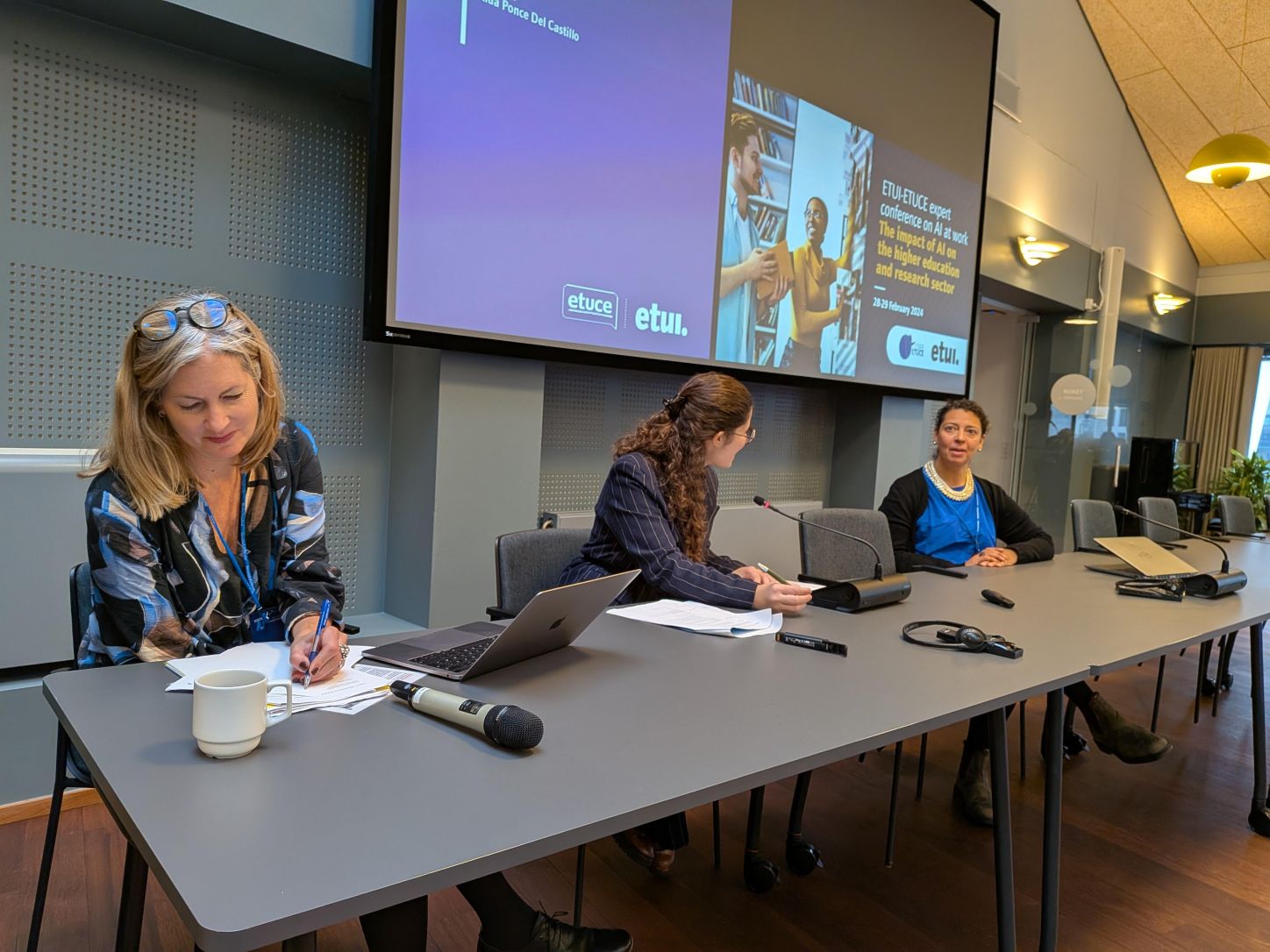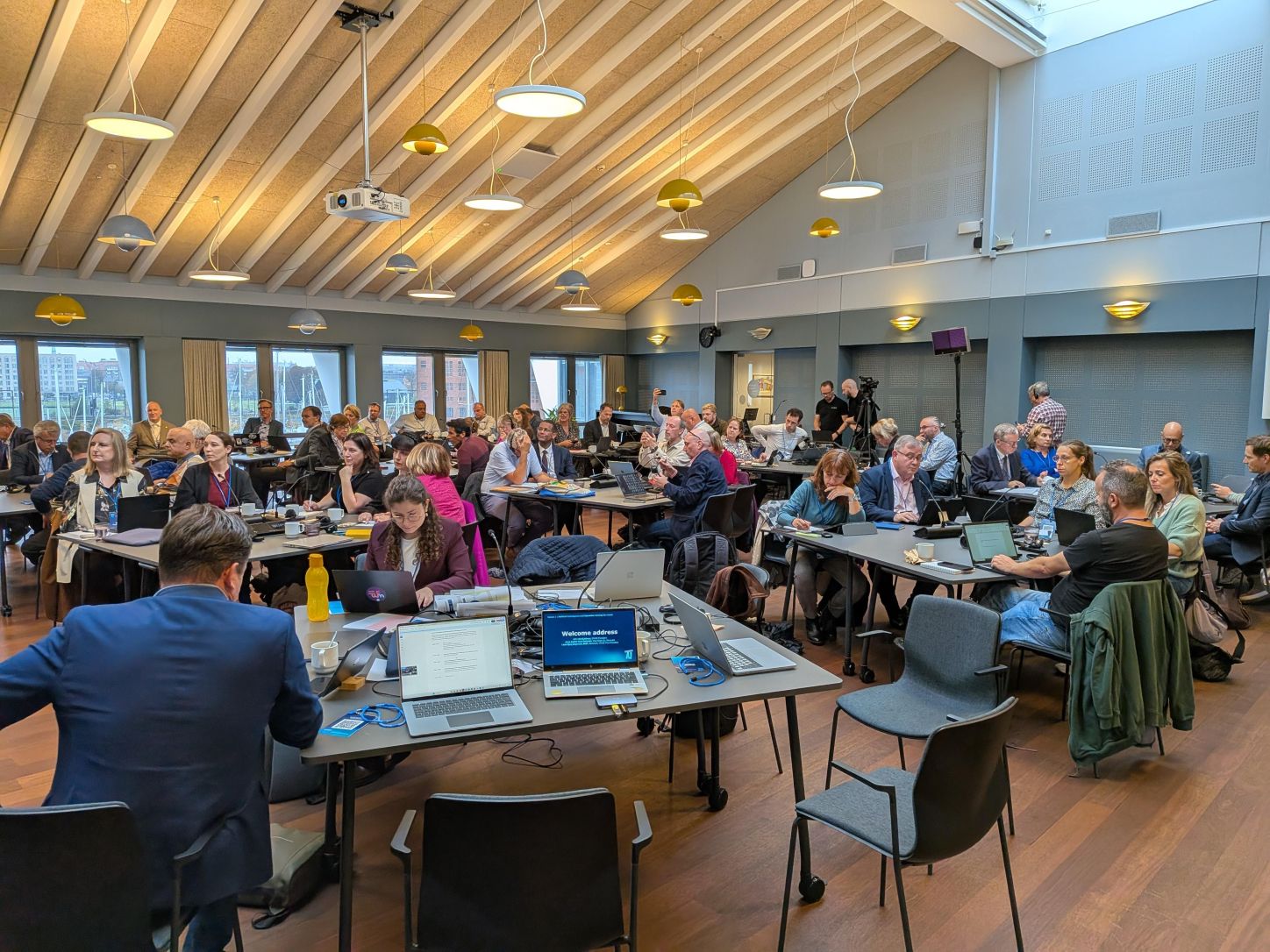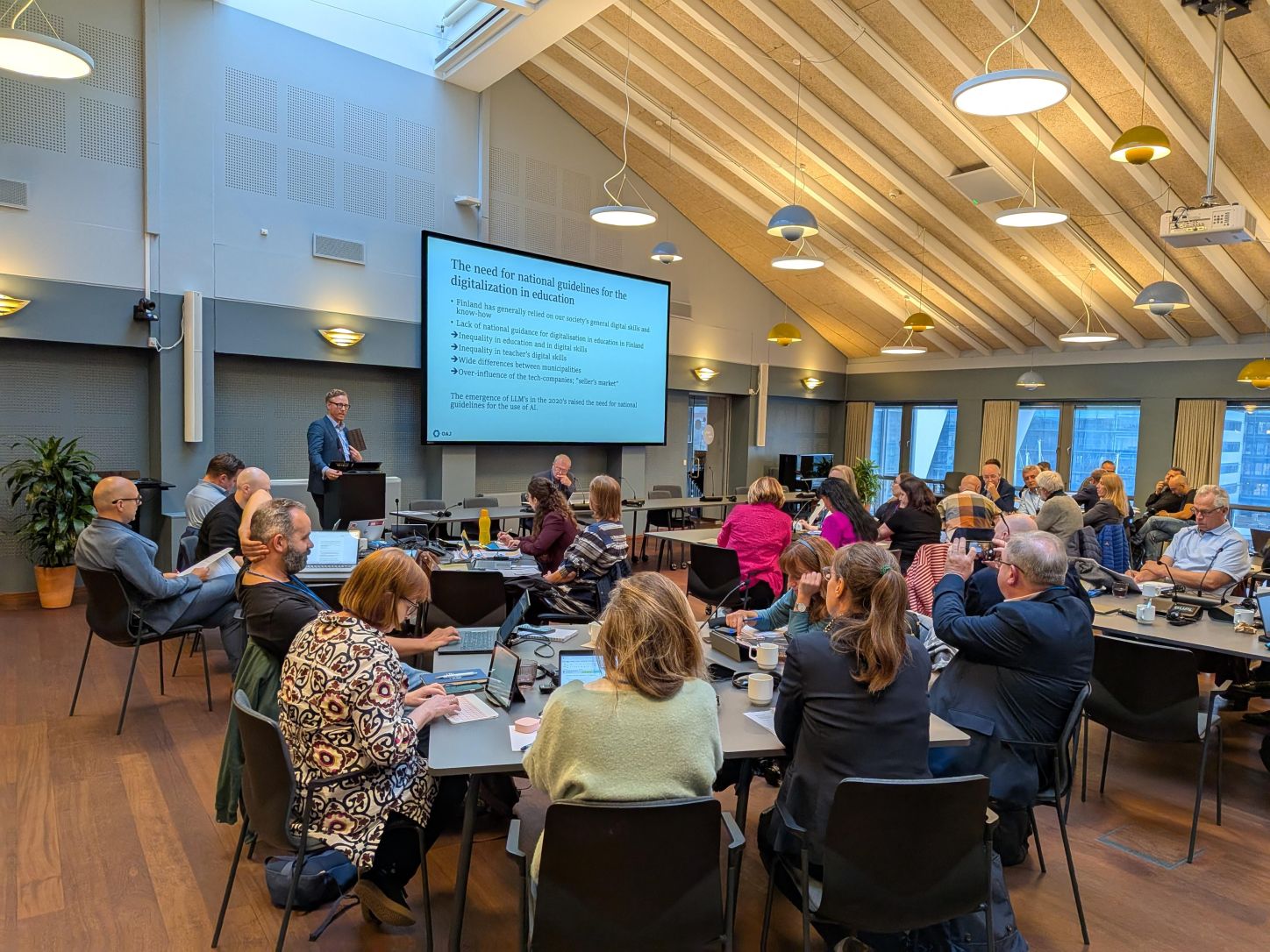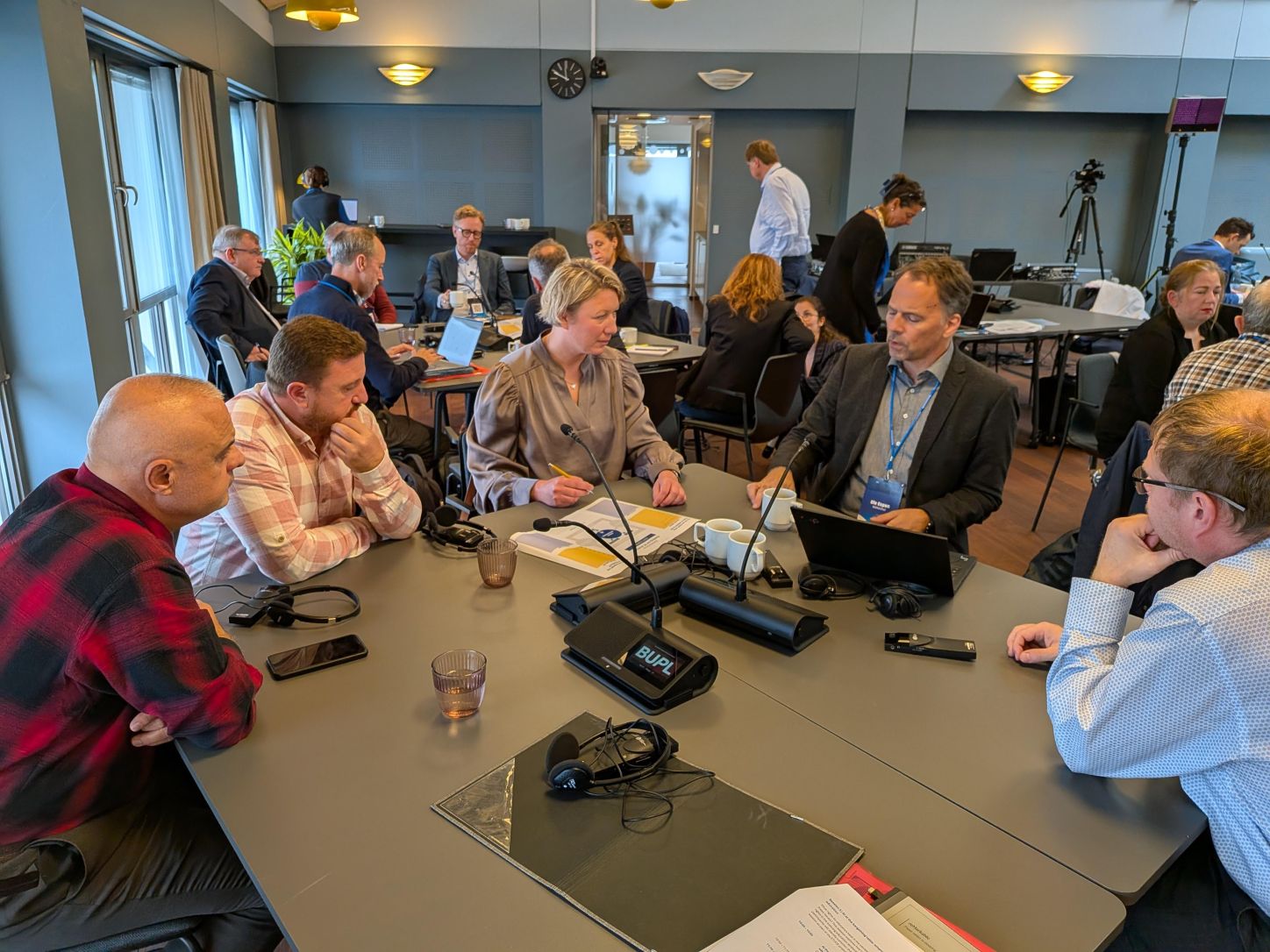
ETUCE Conference on Artificial Intelligence – Education trade unions shaping the future of our education systems
Copenhagen, 7–8 October 2025 – The ETUCE European Conference on Artificial Intelligence and Education brought together over 70 education unionists, researchers, and experts from across Europe. Organised by ETUCE in collaboration with the Danish union for upper secondary education (GL) and hosted by the Danish union for early childhood education (BUPL), the conference took place within the framework of the ETUCE project “ Balancing AI in Education”, co-funded by the European Union.

Setting the Scene: From Hype to Action The conference opened with a clear message: AI is set to have a disruptive impact on education, but the direction it takes depends on the choices made by educators and their unions. Opening addresses highlighted both the opportunities and risks that AI presents for education workers and outlined the union movement’s achievements so far and the road ahead.
Central to the discussions were the preliminary findings of the ETUCE AI survey, conducted as part of a research study in the framework of the “Balancing AI in Education” project. The survey, presented by Dr Tine Wirenfeldt Jensen (Aarhus University) and Dr Charlotte Albrechtsen (University of South Denmark), external research experts in charge of the study, provided an overview of current experiences and perceptions of education trade unions regarding the impact of AI in education across Europe. These findings sparked lively debate and collaborative workshops, as participants interpreted the data and shared experiences from their own contexts. Importantly, the survey results will feed into a comprehensive study on AI in education by Wirenfeldt Jensen and Albrechtsen to be published by ETUCE in 2026.

From Passive Users to Active Shapers A central theme was the need for education unions to move from being passive recipients of AI-driven change to active shapers of policy and practice. National union representatives from Finland, Denmark, Ireland, Georgia, Estonia, and the Netherlands shared strategies for influencing AI guidelines and policies, promoting AI literacy, and ensuring that AI tools genuinely support quality education and democratic values.
Working groups tackled the challenge of building a common advocacy strategy, identifying gaps in current approaches, and outlining union needs for the future. The message was clear: only through collective action and social dialogue can unions ensure that AI serves the interests of educators, students, and society.
Harnessing AI for Quality Education: Zooming into Higher Education and Research Day two began with a fringe session on higher education and research, including insights from the upcoming book to be jointly published by ETUI and ETUCE on AI in Higher Education and Research. Experts discussed the impact of AI on academic work, governance, and the strategic role of unions in safeguarding academic freedom and scientific integrity.

Empowering Educators: Rights, Organising, and Collective Bargaining A key focus of the conference was the urgent need for education trade unions to organise around AI-related issues. Plenary sessions and discussions highlighted how unions can protect and strengthen educators’ rights as AI transforms the sector, drawing on both historical context and practical examples from across Europe.
A presentation from Germany provided valuable insights into collective bargaining on AI, while other contributions showcased concrete strategies for mobilising educators and building union capacity. The conference also featured dedicated session on data privacy and security by ETUI an intellectual property by the European Union Intellectual Property Office (EUIPO). Breakout groups identified current practices and future priorities, especially regarding collective bargaining, data privacy, intellectual property, and professional autonomy.
The conference concluded with a strong call to turn these discussions into actionable strategies, reinforcing the importance of research, advocacy, and community engagement to ensure that AI serves the interests of educators and society.

Looking Forward: Next Steps for ETUCE and the Wider Movement The Copenhagen conference was not an endpoint but the start of a co-designing journey. In the coming months, education trade unions across Europe will focus on developing practical guidelines for AI advocacy and collective bargaining, through in-depth collaboration with education trade union experts and two upcoming training workshops within the framework of the Balancing AI in Education project. The network on Engage launched at the conference will also be further expanded, fostering greater collaboration and knowledge sharing among union members and stakeholders. In addition, ETUCE will shortly launch a call to establish an expert group on AI and education, further strengthening the network of union expertise in this field. The launch of the upcoming ETUI-ETUCE book on AI and Higher Education and Research will further inform this work. Research, training, and community-building activities will continue across Europe, ensuring that the voice of educators remains central as AI continues to reshape education.







